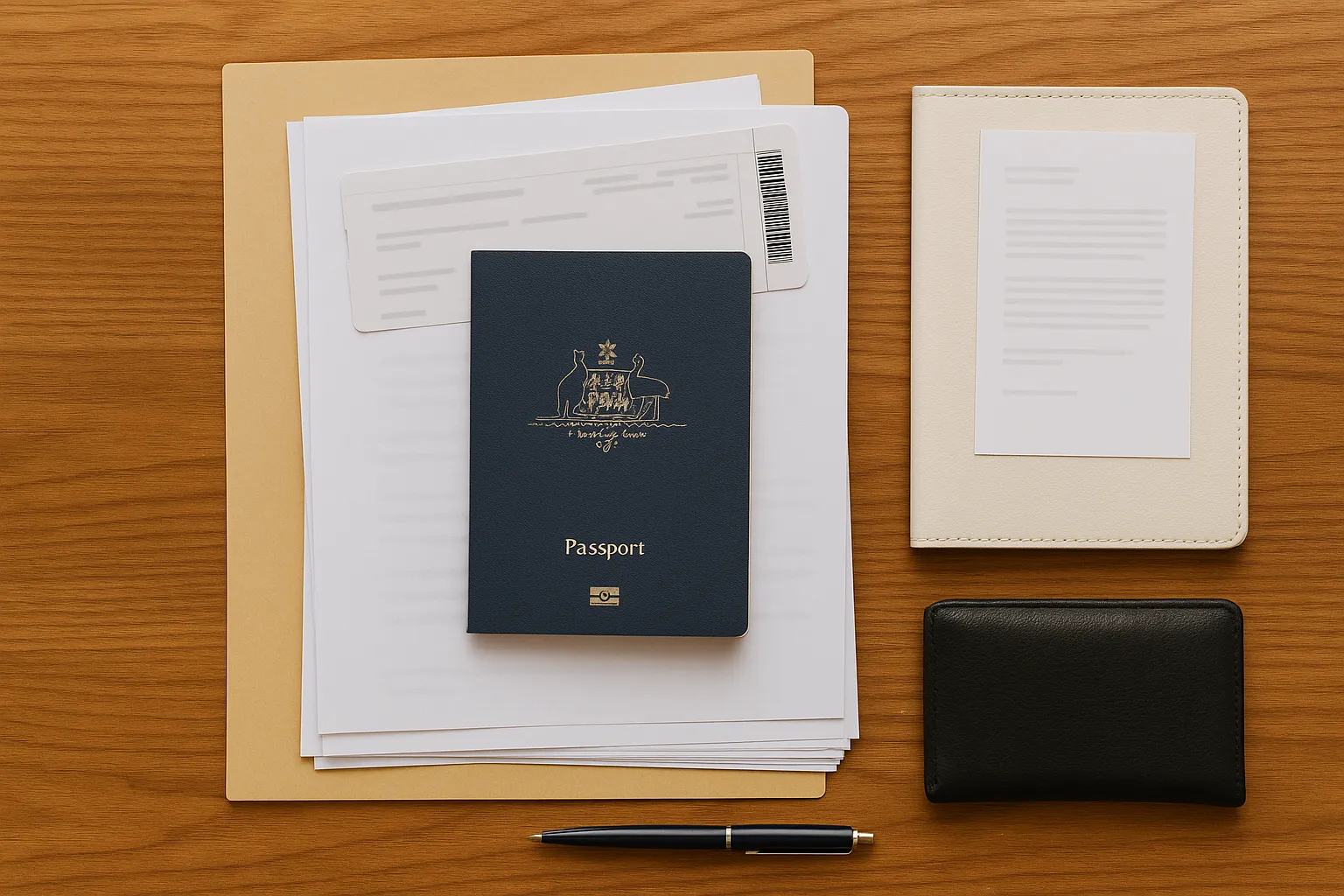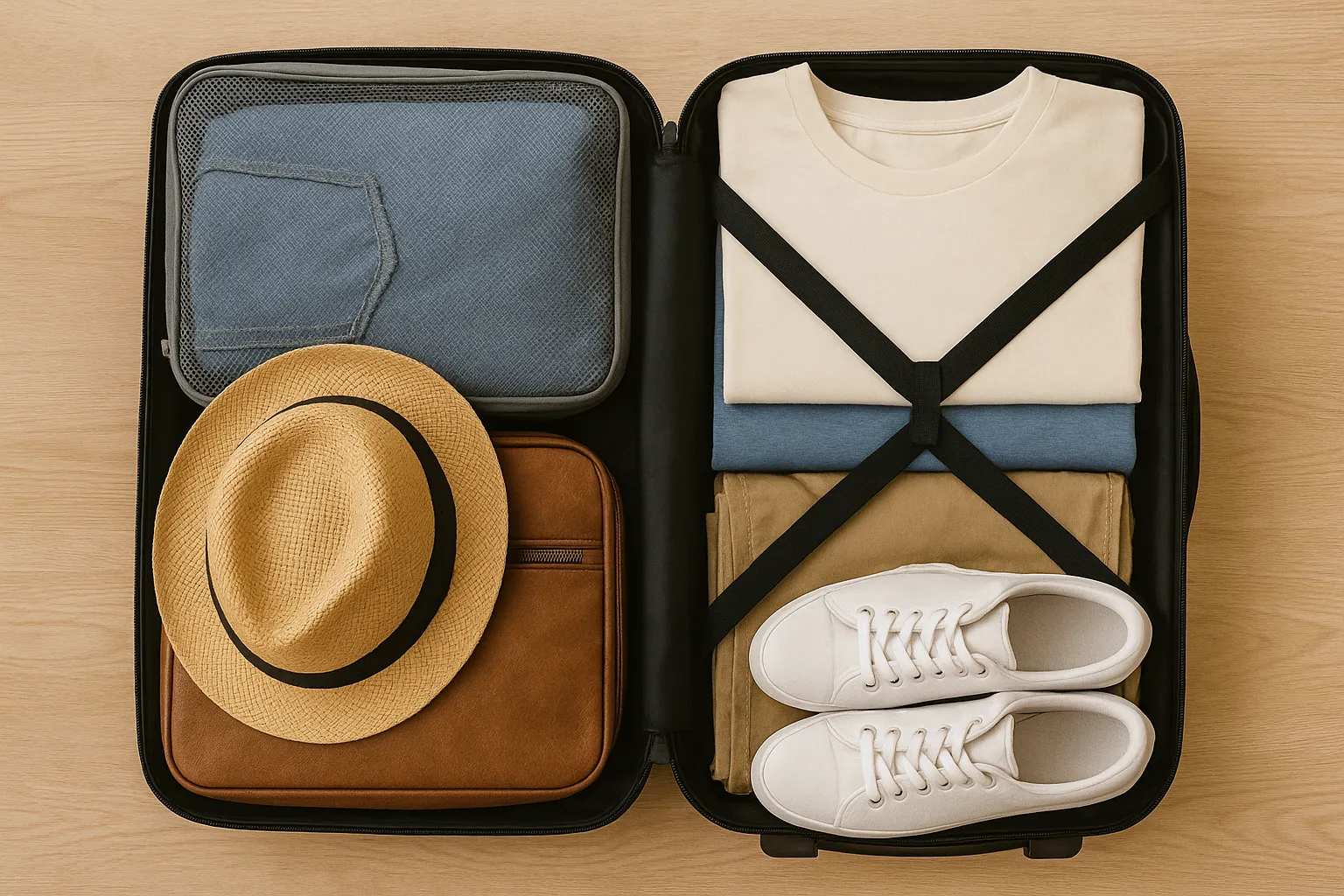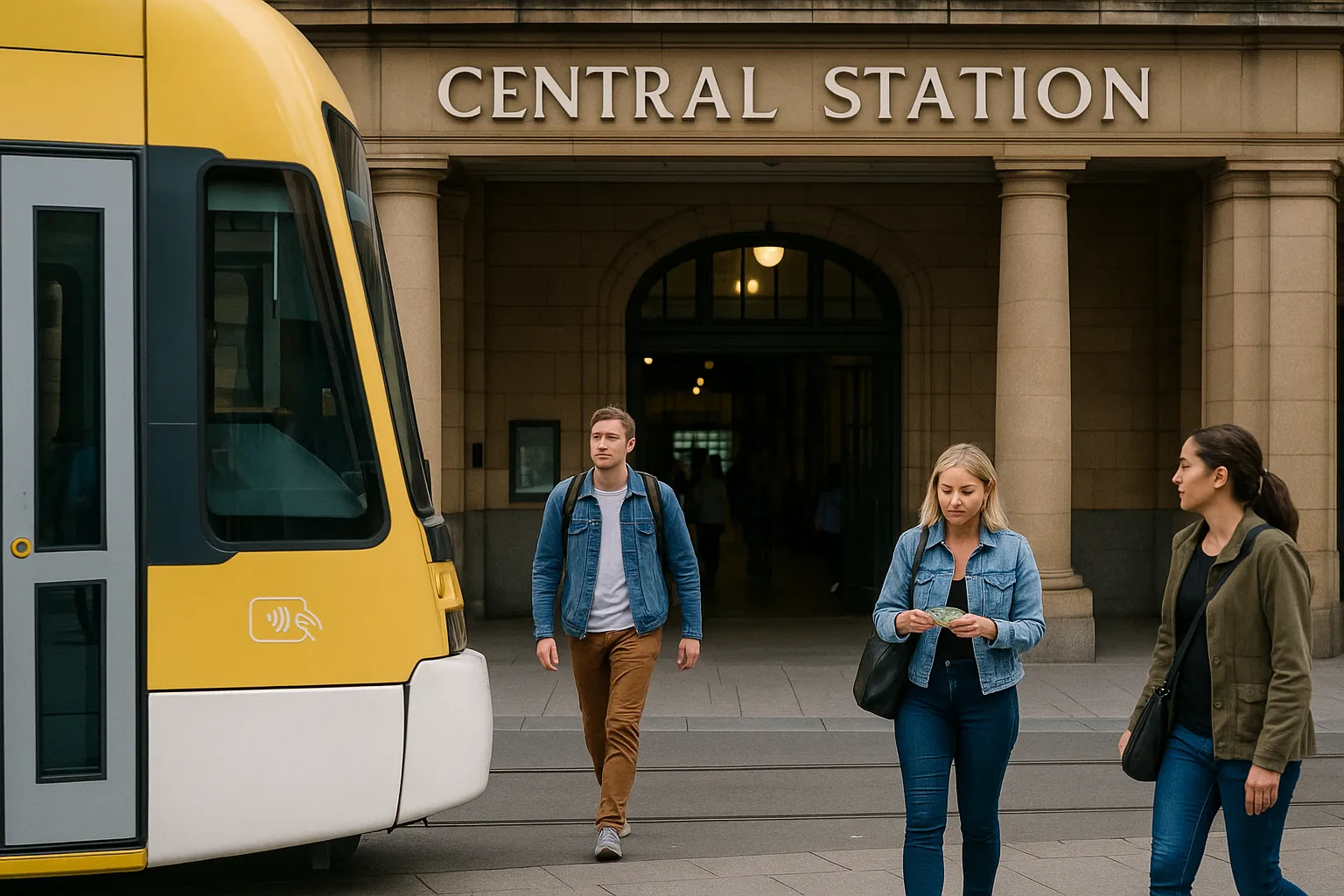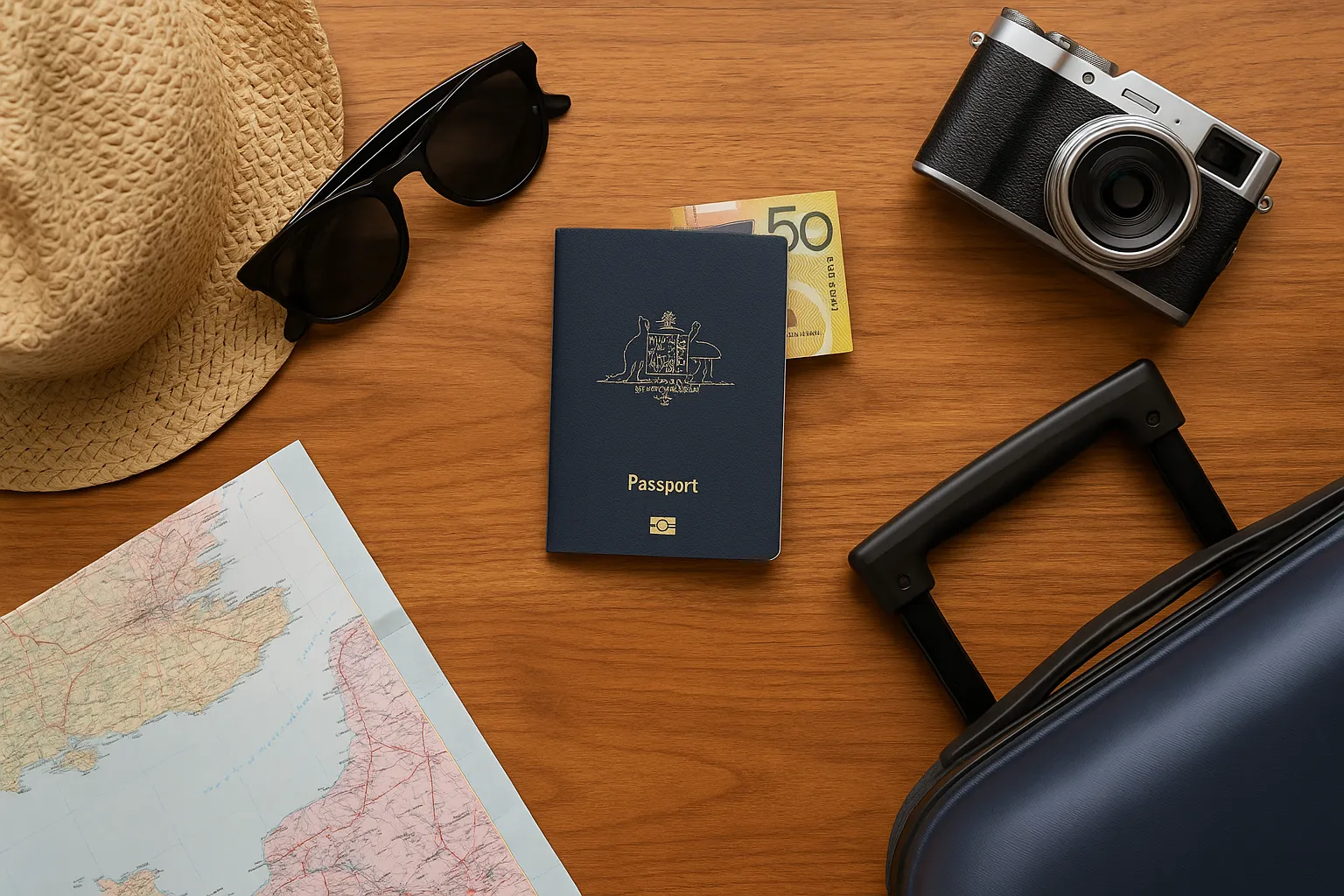You’ve booked the flights, planned your itinerary, and your suitcase is ready by the door. But have you checked your passport expiry date? Do you know the entry rules for your destination?
Many Australians miss these important details when they prepare for an international trip, which leaves opportunities for their trip to become a stressful time before it even starts.
That’s why we’ve put together our top 10 smart and practical tips to help make sure your next trip abroad goes smoothly. Ready? Let’s get you travelling like a pro!
Tip 1: Sort Your Travel Documents Before You Leave

Getting your documents wrong is one of the fastest ways to ruin your trip. It is also one of the easiest things to avoid with a bit of preparation.
Every country has different rules when it comes to documents, and being caught off guard can mean missed flights or even being refused entry. Here is how to stay organised:
- Your passport should have at least six months’ validity to meet entry rules.
- Check the visa requirements for your destination well before you leave.
- Look into any health forms, proof of vaccinations, or other entry conditions.
- Make two copies of all important travel documents, both printed and digital.
After you have these sorted, double-check your details match across all documents, especially your name and travel dates. Small errors like these can cause big delays at check-in or border control.
Tip 2: Don’t Leave Without Travel Insurance
Once your documents are sorted, the next thing to organise is your travel insurance. Medical emergencies abroad can cost tens of thousands of dollars, and Australian Medicare won’t cover you once you leave the country.
What many travellers don’t realise is that travel insurance provides essential protection against unexpected expenses that could otherwise destroy your holiday budget.
Here is what the right travel insurance should cover:
- Medical treatment and hospital stays if you get sick or injured.
- Trip cancellations, delays, or missed flights.
- 24/7 multilingual emergency assistance hotlines.
- Lost luggage, stolen passports, or damaged valuables.
- Natural disasters and evacuation costs if needed.
If you are heading away for an extended period or travelling often, look into multi-trip policies to save money. It’s a simple way to stay covered without paying for separate plans each time.
Having this peace of mind can be priceless when you are far from home.
Tip 3: Have Multiple Payment Options

The most common (and easiest to solve) travel headache is running out of money. That includes your credit or debit card not working overseas. It’s extremely common.
Relying on a single payment option abroad is just asking for trouble, especially when card machines malfunction or your bank blocks transactions for suspicious activity (if something can go wrong, it will go wrong). It gets even trickier in places where cash is still used frequently or some payment options aren’t available.
So, here is how you can prepare for payments abroad before you leave:
- Carry multiple credit cards from different providers (Visa, Mastercard, Amex).
- Bring at least one debit card for ATM cash withdrawals.
- Research exchange rates to get the best deal before converting money.
- Download mobile payment apps accepted in your destination.
- Let your bank know you are travelling so your cards do not get blocked.
- Keep your backup cash separate from your main wallet in case of theft.
Having your money sorted means fewer worries and more freedom to enjoy your destination. Some countries still rely heavily on cash, so always arrive with enough for your first day, just in case ATMs or cards are not an option.
Tip 4: Stay Connected with Tech-Savvy Tools
Now that your finances are sorted, the next important step is staying connected while abroad for both safety and convenience.
International roaming charges can shock you with bills reaching hundreds of dollars for just a few days of normal usage. For context, Telstra’s pay-as-you-go roaming charges $3 for every MB of data used, which equals around 1.5 MB for every minute of social media time.
So you need to be smart about how you stay connected. Here is a list of your connectivity and tech essentials before you go abroad:
- Sort your mobile phone plan or grab a local SIM when you arrive.
- Download Google Maps offline for navigation without internet connectivity
- Install translation apps to help with language barriers.
- Share your travel dates, accommodation details, and itinerary with a trusted friend.
- Bring portable power banks and universal charging adapters.
- Save digital copies of your key documents in secure cloud storage.
Having these tools ready means you can travel to new places without stress. To be sure they’ll come through when you need them, try out apps like Google Maps offline before you go.
Tip 5: Research Local Laws and Customs
Every destination has its own way of doing things. What is perfectly legal or normal in Australia might cause big problems in another country.
Some differences can be surprising, like Singapore’s strict chewing gum laws or Dubai’s rules on public displays of affection. Trust us, just do some research. It’ll save you a lot of stress and embarrassment (or worse…).
Here’s where to start with researching local laws and customs before you leave:
- Some local laws may seem minor but can lead to big fines, so it’s worth checking in advance.
- Research cultural dress codes and modesty requirements.
- Alcohol laws can differ a lot between countries, especially when it comes to drinking in public.
- Health requirements like vaccines and travel precautions are often specific to your destination.
- Locate your nearest Australian embassy or consulate in case of emergencies.
- The Smart Traveller service offers real-time safety updates tailored to your travel plans.
- Respecting cultural etiquette can make everyday interactions smoother and more respectful.
- Look into common scams and safety tips to stay street smart.
The more you know, the more confident and relaxed you’ll feel when exploring new places. We recommend checking reliable sources like Smart Traveller and official government sites to get the best information.
Pro Tip: You should always trust AI, but it can be helpful in situations like these. Ask Chat-GPT “hey, what’s the law on x in (destination)”, then ask it to link you to government sources. Make sure to check the sources though. AI is known to hallucinate.
Next, let us get your packing sorted so you are ready for a smooth trip.
Tip 6: Pack Smart and Light

Packing efficiently makes travel easier, saves money on baggage fees, and lightens the load. Our experts have some smart packing tips for you to help you keep your costs down.
Here are a few easy packing tips and strategies to help:
- Check airline baggage weight limits and restrictions before packing.
- Packing cubes are a simple way to keep clothes tidy and make things easier to find.
- Your carry-on should hold the essentials like travel documents, medication, and chargers (just in case).
- Heavier items are best placed at the bottom of your suitcase to keep it balanced.
- Roll clothes instead of folding to save space and reduce wrinkles.
- Make two copies of passports, visas, and other key documents, one digital and one printed.
- Leaving a little extra space can make it easier to bring back souvenirs or anything you pick up along the way.
Packing smart also means thinking about your destination’s weather and local customs. Check both before you pack so you have the right clothes and avoid carrying things you will not need.
Tip 7: Have Backup Plans for Travel Disruptions
A backup plan can save you from facing any unexpected disruptions.
After all, flight delays, cancellations, and transportation strikes are all part of modern travel and affect millions every year. You can’t always stop them from happening, but you can definitely choose how well you handle them.
Here are your travel disruption preparation essentials:
- Plans can change, so having backup options for flights, transport, and places to stay can really save the day.
- Ground transport like trains, buses, or car rentals can be helpful alternatives if your main option falls through.
- Look for flexible or refundable stays, especially near airports or major transport spots.
- Save your emergency contacts and embassy details somewhere easy to access.
- Save emergency contact numbers for airlines, hotels, and travel insurance companies in case something goes wrong.
- Delays happen, so it helps to build in some extra time between activities or connections.
- First time travelling overseas? Double-check the essentials and ask someone experienced for advice.
Having backup plans means you will waste less time scrambling for solutions when things go wrong. Add saving key contacts offline to the list as well, since phone batteries can die and internet access isn’t always available when you need it most.
Now that your backup plans are sorted, let us make sure you have your health covered before you head off.
Tip 8: Look After Your Health Before You Go
Staying healthy on holiday starts well before you step on the plane. The last thing you want is to get sick abroad or be caught without the right medication.
While your regular GP provides excellent care at home, travel medicine specialists have knowledge that general practitioners might not have when it comes to specific international destinations.
This expertise really matters for things like tropical diseases, high altitudes, or medication rules in other countries. Remember, your health is too important to leave to chance when travelling internationally.
Here is your health preparation checklist:
- Some destinations require specific vaccinations or health certificates, so it’s best to check early.
- A travel medicine consultation, ideally six weeks before your trip, can help you prepare properly.
- Stock up on any prescription medications you need and carry them in your hand luggage.
- Get hepatitis A/B, typhoid, Japanese encephalitis, or yellow fever shots as needed.
- Knowing exactly what your travel health insurance covers can save you a lot of stress later.
- Items like hand sanitiser, wipes, and face masks are good to have on hand, especially for long flights.
- Make sure your insurance includes medical emergencies and evacuation, just to be safe.
- Pack compression socks for long flights to improve circulation and prevent blood clots.
Now, let’s get your transport and money sorted for when you land.
Tip 9: Learn Local Transport and Money Norms

Before we head into the tips, here’s a quick question for you: when you travel abroad, do you prefer to be treated like a foreigner or to blend in with the locals?
There’s no right answer to this, don’t worry. But knowing how locals get around and handle money can help you stay safe and avoid unnecessary costs.
Here is what you want to learn about local transport and money for your destination:
- Some places rely heavily on cash, while others are more card-friendly, so knowing this ahead of time can be useful.
- Learning a few basic money-related phrases in the local language can make everyday transactions easier.
- Download transport apps or ride-share options popular in that country.
- Tourist taxes, entry fees, and hidden service charges aren’t always included in listed prices, so it helps to do a bit of research.
- High-fee exchange kiosks can eat into your travel budget, so it’s best to avoid them when possible.
- Budgeting for things like tips, added transport costs, or small fees gives you a little breathing room.
If you have these checked out beforehand, you’re reducing more stress and preparing for a smoother trip where you can move around like a local.
Tip 10: Stay Calm and Enjoy the Trip
Our last tip is to just enjoy your trip! What matters most is staying flexible and adjusting as you go. Getting frustrated will only take the fun out of your trip.
Here is your final checklist to keep your cool and enjoy the trip:
- Small disruptions are normal during travel, and most can be resolved quickly.
- Flexibility in your plans will help you handle most changes with ease.
- Remember that confidence comes from preparation, and you have already done the hard work.
- Perfect travel experiences don’t exist, so it’s best to embrace both the planned and unexpected moments.
Trust in your preparation, stay alert to your surroundings, and remember that millions of people travel internationally every day without major incidents.
All that is left for us to do now is to wrap it up with a final checklist.
Smart Travel Abroad Starts with You
Now you are fully equipped to travel safely abroad. And no, we are not saying you need to pack the kitchen sink, mate.
We know there’s a lot to take in, so just start by focusing on what stood out to you the most. Once again, there’s no such thing as a perfect travel experience. If this guide helps you have a trip that feels fulfilling and a little less stressful, then we’ve done our job.
Now here is your final checklist (this time for real) to help you stay ready for smart travel abroad:
- Check your passport, visas, and entry requirements.
- Organise travel insurance and know what is covered.
- Sort your money with backup payment options.
- Stay connected with tech tools and share your plans.
- Research your destination, local laws, and customs.
- Pack smart and light.
- Have backup plans for disruptions.
- Look after your health and carry the essentials.
- Learn the local transport and money basics.
- Stay flexible and enjoy the experience.
Now all that’s left is for you to save this article and start prepping for your international trip.
